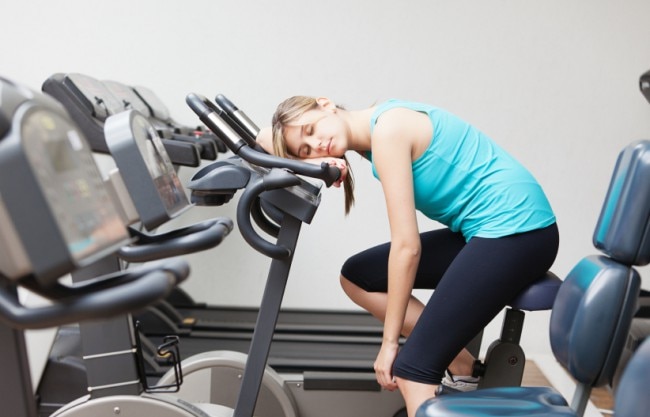It’s no secret that sleep is essential for good health. From clearer thinking and better mood to improved immune system function and recovery from injuries, a good night’s rest has been shown to support both the mind and body in significant ways. When you don’t get enough Zzzzzs, you feel it: it’s harder to remember things, easy tasks can seem complicated and you move much more slowly than you would if you’d gotten a full eight hours of rest. So how does sleep deprivation affect exercise performance?
If you’ve ever hit the gym after a night spent tossing and turning, you may recognize these effects:
Poor sleep leads to:
- Decreased energy levels
- Lack of focus (which can contribute to injury)
- Low motivation (and skipped workouts!)
- Reduced intensity (altering the effectiveness of your workout)
- Altered states of hunger and erratic/poor eating (including increased cravings for sugar to boost energy)
- Poor post-exercise recovery (without rest, your body can’t replenish and rebuild muscle properly)
How much sleep is enough?
Although individual needs vary, experts recommend that healthy adults get between seven and nine hours of sleep per night. If you’re training for an athletic event, requirements may be even higher.
A good night’s sleep will:
- Allow your body to properly repair itself after exercise
- Help your body build muscle more efficiently
- Promote release of natural growth hormones to help strengthen your muscles and bones
- Provide energy for the next day’s workouts
- Improve your mood and attitude
- Support your ability to make smart diet choices that can enhance your workouts
- Reduce stress levels
- Strengthen immunityTips for better sleep:
- Stick with a regular sleep schedule, even on the weekend (avoid “sleeping in” as much as possible)
- Use natural relaxation techniques instead of medications to sleep. Deep breathing exercises, decaffeinated herbal tea or a warm, aromatherapy bath before bed can also help promote good rest.
- Keep caffeine and alcohol consumption to a minimum, especially in the late afternoon and evening.
If you find yourself dragging before your workout, and you’ve been having trouble sleeping at night, choose a healthy snack with carbs (such as a banana with peanut butter) rather than an energy drink to naturally increase your energy levels.

